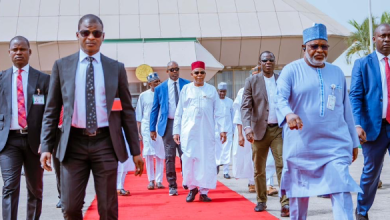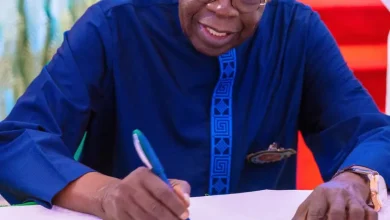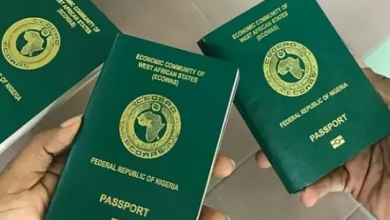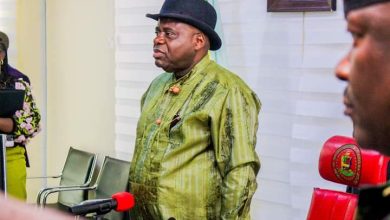Tinubu reaffirms commitment to strengthening diaspora ties, investment
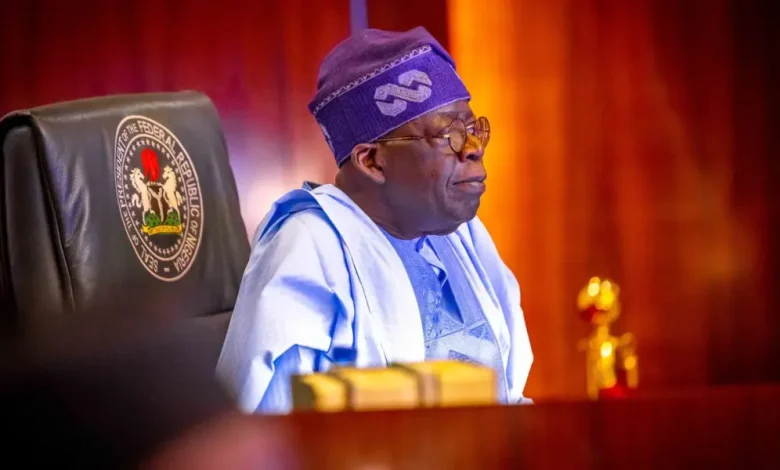
President Bola Tinubu’s administration has reiterated its determination to build stronger connections between Nigerians in the diaspora and the home country, creating an environment where collaboration and investment can flourish for national development.
Vice President Kashim Shettima, represented by Ambassador Dunoma Ahmed, Permanent Secretary at the Ministry of Foreign Affairs, stated this on Wednesday at the 8th Nigeria Diaspora Investment Summit (NDIS), taking place at the State House Conference Centre, Presidential Villa, Abuja.
The three-day event, themed “Fast-Tracking Regional and National Development by Mobilising Diaspora Investment,” runs from Nov. 11 to 13.
Shettima said the summit’s theme aligns with President Tinubu’s vision of harnessing the collective strength of Nigerians at home and abroad to drive growth, prosperity, and unity of purpose.
“Nigeria’s progress will accelerate when government, private sector players, and our citizens in the diaspora collaborate to pursue a shared national goal,” he said.
He noted that under the Renewed Hope Agenda, the government recognises the Nigerian diaspora as a key pillar of its foreign policy—alongside democracy, development, and demography.
The vice president highlighted a number of ongoing initiatives aimed at deepening diaspora engagement.
Among them is the Home and Abroad Housing Platform, launched by the Nigerians in Diaspora Commission (NiDCOM), which provides a secure avenue for Nigerians overseas to invest in real estate and own homes in the country.
He also announced plans for a Diaspora Bond, designed to give Nigerians abroad a direct stake in the country’s infrastructure projects, while reforms such as the Non-Resident BVN policy and a more competitive exchange rate have boosted confidence in remittances.
According to Shettima, these efforts contributed to a record $21 billion in remittances in 2024, supporting millions of households and small businesses.
“Our greatest asset lies in the creativity and resilience of our people.
“Through partnerships between NiDCOM and agencies like NASENI, we are linking diaspora professionals, scientists, engineers, and innovators with opportunities to contribute to Nigeria’s technological and industrial development.”
Shettima described Micro, Small and Medium Enterprises (MSMEs) as the backbone of Nigeria’s economy, accounting for more than 50 per cent of GDP and employing 86 per cent of the workforce.
However, he acknowledged that limited access to finance remains a major constraint.
To address this, he said the government has launched several targeted interventions, including a N75 billion MSME Intervention Fund to support 75,000 small businesses; the FGN–ALAT Digital Skillnovation Programme, which has trained millions of young Nigerians in digital and entrepreneurial skills;
The National MSME Clinics, which help business owners resolve regulatory and operational challenges; non-repayable grants to reward outstanding MSMEs across the states.
“These measures are designed to unleash the entrepreneurial spirit of Nigerians and create inclusive economic growth,” he said.
On infrastructure, the vice president said the administration has prioritised investments in critical sectors roads, power, and digital connectivity describing them as “the arteries through which economic life flows.”
He cited the government’s approval of N4.2 trillion for road and bridge construction projects, including the Lagos–Calabar Coastal Highway and Lagos–Ibadan Expressway, which he described as transformative economic corridors.
In the power sector, N1.3 trillion has been earmarked to settle legacy debts and strengthen the national grid, while efforts are also underway to expand solar mini-grids to rural communities.
Additionally, over 90,000 kilometres of fibre optic cables are being laid to support Nigeria’s growing digital economy.
“These projects are not mere promises but tangible evidence that Nigeria is on the path of progress,” Shettima affirmed.
Also speaking at the event, Minister of Information and National Orientation, Mohammed Idris Malagi, urged Nigerians at home and abroad to project a positive image of the country, noting that perceptions significantly influence investment decisions.
Malagi disclosed that Nigeria’s recent removal from the Financial Action Task Force (FATF) grey list reflects the country’s improved financial governance and has strengthened investor confidence.
“The delisting shows that Nigeria now meets global standards in managing the flow of financial resources.
“Investors can confidently do business here, repatriate profits, and trust that government policies support fair and transparent operations, ” he said.
He commended the NDIS organisers for creating a platform that connects Nigerian entrepreneurs with global investors, fostering funding opportunities and partnerships that contribute directly to national growth.
